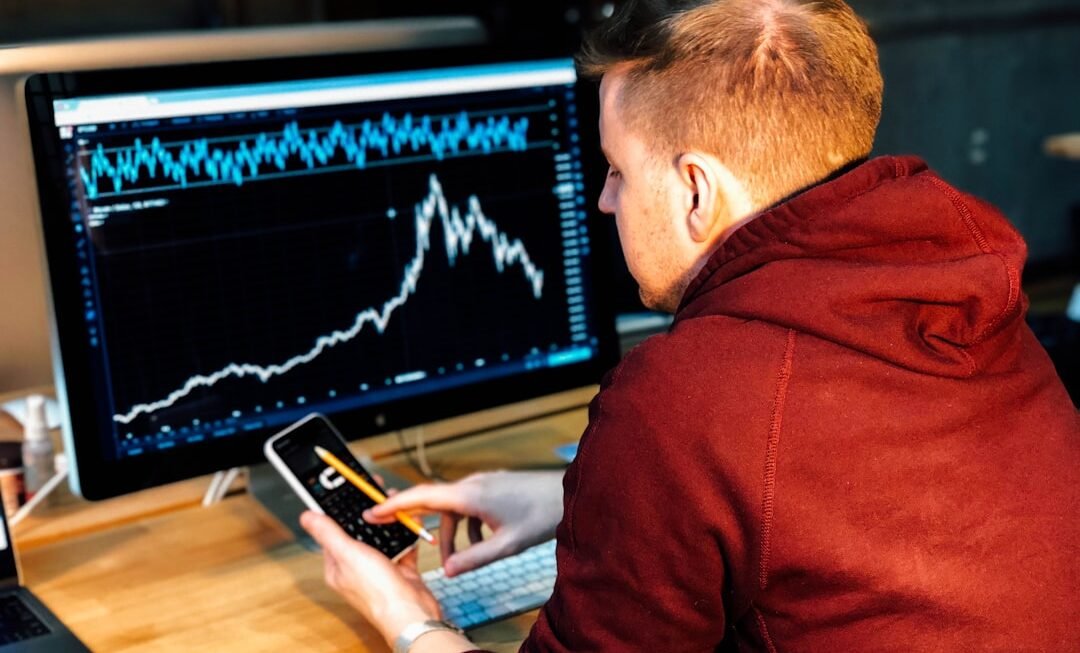Quantum computing has emerged as a transformative force in various sectors, and trading is no exception. The fundamental principles of quantum mechanics allow quantum computers to process information in ways that classical computers cannot. This capability is particularly advantageous in trading, where the ability to analyze vast datasets and execute complex algorithms at unprecedented speeds can lead to significant competitive advantages.
As financial markets become increasingly complex and data-driven, the need for advanced computational power has never been more critical. Quantum computing offers the potential to solve problems that are currently intractable for classical systems, such as optimizing portfolios or pricing derivatives with high-dimensional variables. The financial industry has begun to recognize the potential of quantum computing, with major firms investing heavily in research and development.
For instance, companies like Goldman Sachs and JPMorgan Chase have established partnerships with quantum technology firms to explore how quantum algorithms can enhance trading strategies. These collaborations aim to leverage quantum computing’s unique capabilities to improve market predictions, optimize trading strategies, and manage risk more effectively. As quantum hardware continues to evolve, the financial sector is poised to harness this technology to gain insights that were previously unattainable, fundamentally altering the landscape of trading.
Key Takeaways
- Quantum computing is revolutionizing trading by enabling complex calculations and analysis at unprecedented speeds, leading to more efficient and accurate trading strategies.
- Artificial intelligence is being harnessed in trading to analyze vast amounts of data, identify patterns, and make real-time decisions, ultimately improving trading outcomes.
- The integration of quantum computing and AI in trading strategies is enhancing predictive analytics, risk management, and decision-making processes, leading to more profitable and secure trading practices.
- Advantages of quantum computing and AI in trading include faster processing, improved accuracy, and the ability to handle large datasets, while challenges include high costs, data privacy concerns, and the need for specialized expertise.
- Quantum computing and AI are set to be game-changers for trading in 2025, with the potential to significantly impact market dynamics, trading strategies, and overall financial outcomes.
Harnessing the Power of Artificial Intelligence in Trading
Enhanced Decision-Making with Machine Learning
Machine learning algorithms can analyze historical data to identify patterns and trends that human traders might overlook. By employing techniques such as natural language processing, AI can also assess news articles, social media sentiment, and other unstructured data sources to gauge market sentiment and predict price movements.
Real-Time Data Analysis and Adaptability
This ability to synthesize vast amounts of information quickly allows traders to make informed decisions based on real-time data. Moreover, AI-driven trading systems can adapt to changing market conditions by continuously learning from new data inputs. For example, hedge funds like Renaissance Technologies have successfully utilized AI algorithms to execute trades based on statistical arbitrage strategies.
Improved Efficiency and Reduced Human Error
These systems can adjust their parameters dynamically, responding to market fluctuations with remarkable agility. The integration of AI into trading not only enhances efficiency but also reduces human error, allowing for more precise execution of trades. As AI technology continues to advance, its role in trading is expected to expand further, leading to more sophisticated and effective trading strategies.
The Integration of Quantum Computing and AI in Trading Strategies
The convergence of quantum computing and artificial intelligence represents a new frontier in trading strategies. By combining the computational power of quantum systems with the analytical capabilities of AI, traders can develop models that are both faster and more accurate than those relying solely on classical computing methods. Quantum machine learning, a burgeoning field at the intersection of these two technologies, seeks to leverage quantum algorithms to enhance machine learning processes.
This integration could lead to breakthroughs in predictive analytics, enabling traders to forecast market movements with unprecedented precision. For instance, quantum algorithms can process large datasets exponentially faster than classical algorithms, allowing AI models to train on more extensive datasets in shorter timeframes. This capability is particularly beneficial in high-frequency trading environments where milliseconds can make a significant difference in profitability.
Additionally, quantum-enhanced AI could improve risk assessment models by simulating various market scenarios with greater accuracy. As financial institutions begin to explore these synergies, we may witness the emergence of hybrid trading strategies that capitalize on the strengths of both quantum computing and AI.
Advantages and Challenges of Quantum Computing and AI in Trading
The advantages of integrating quantum computing and AI into trading are manifold. One of the most significant benefits is the ability to process and analyze vast amounts of data at unprecedented speeds. This capability allows traders to identify opportunities and risks more quickly than ever before, potentially leading to higher returns on investment.
Furthermore, the combination of these technologies can enhance predictive accuracy, enabling traders to make more informed decisions based on comprehensive analyses of market conditions. However, the adoption of quantum computing and AI in trading also presents several challenges. One major hurdle is the current state of quantum hardware, which is still in its infancy.
While progress is being made, many quantum computers are not yet capable of performing complex calculations reliably or at scale. Additionally, there is a steep learning curve associated with developing algorithms that can effectively utilize quantum computing capabilities. Financial institutions must invest not only in technology but also in talent capable of navigating this new landscape.
Moreover, as these technologies become more prevalent, concerns about market manipulation and ethical considerations will need to be addressed.
Quantum Computing and AI: A Game-Changer for Trading in 2025
Looking ahead to 2025, the integration of quantum computing and AI is poised to revolutionize trading practices significantly. As advancements in quantum technology continue to unfold, we can expect a new generation of trading platforms that leverage these capabilities for enhanced performance. By 2025, it is likely that many financial institutions will have adopted quantum-enhanced AI systems that allow for real-time analysis of market data across multiple dimensions.
This shift could lead to a paradigm where traditional trading strategies are redefined by the insights generated through these advanced technologies. Moreover, as regulatory frameworks evolve to accommodate these innovations, we may see a more structured approach to risk management and compliance within trading operations. The ability to simulate various market scenarios using quantum computing could enable firms to stress-test their portfolios more effectively, identifying vulnerabilities before they manifest in real-world conditions.
As a result, traders will not only be able to capitalize on opportunities but also navigate risks with greater confidence.
Quantum Computing and AI: Revolutionizing Risk Management in Trading
Limitations of Traditional Risk Assessment Models
Traditional risk assessment models often rely on historical data and linear assumptions about market behavior. However, these models can fall short in volatile or unpredictable market conditions.
Quantum Computing and AI: A New Approach
Quantum computing offers a new approach by enabling the simulation of complex financial systems with numerous interacting variables, providing a more nuanced understanding of risk. AI can further enhance this process by analyzing patterns within these simulations and identifying correlations that may not be immediately apparent through classical methods.
Enhanced Risk Assessment and Mitigation
This capability allows for a more comprehensive risk assessment that takes into account a wider array of factors influencing market dynamics. As firms adopt these advanced risk management techniques, they will be better equipped to mitigate potential losses while maximizing returns.
The Future of Trading: Quantum Computing and AI Predictive Analytics
Predictive analytics is set to undergo a transformation with the advent of quantum computing and AI integration in trading practices. Traditional predictive models often rely on historical data trends and statistical methods that may not capture the full complexity of market behavior. In contrast, quantum-enhanced predictive analytics can analyze vast datasets with intricate relationships among variables, leading to more accurate forecasts of future price movements.
For instance, consider a scenario where a trader seeks to predict stock prices based on a multitude of factors such as economic indicators, social media sentiment, and historical performance data. A classical model might struggle to incorporate all these variables effectively due to computational limitations. However, a quantum-enhanced predictive model could analyze these factors simultaneously, providing insights that are both timely and actionable.
As predictive analytics becomes increasingly sophisticated through this integration, traders will be empowered with tools that allow them to anticipate market shifts with greater accuracy.
Quantum Computing and AI: Ethical and Regulatory Considerations for Trading
As quantum computing and AI reshape the trading landscape, ethical and regulatory considerations will become paramount. The potential for these technologies to manipulate markets or create unfair advantages raises questions about fairness and transparency in trading practices. Regulators will need to establish guidelines that ensure equitable access to these advanced tools while preventing misuse that could undermine market integrity.
Moreover, as firms adopt AI-driven decision-making processes, concerns about accountability arise. If an algorithm makes a trade that results in significant losses or market disruption, determining liability becomes complex. Financial institutions must navigate these ethical dilemmas while fostering innovation within a framework that prioritizes responsible use of technology.
As we move forward into an era defined by quantum computing and AI in trading, addressing these ethical considerations will be essential for maintaining trust in financial markets and ensuring sustainable growth within the industry.












